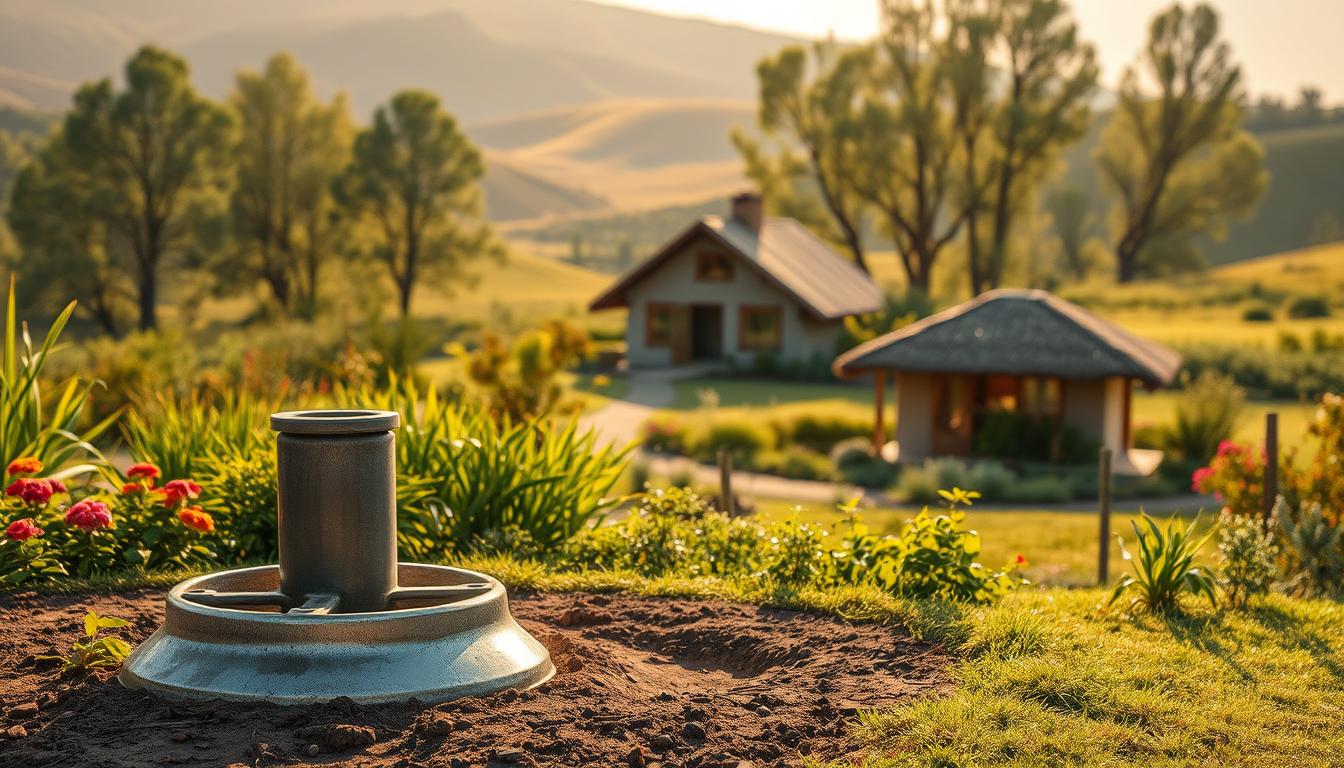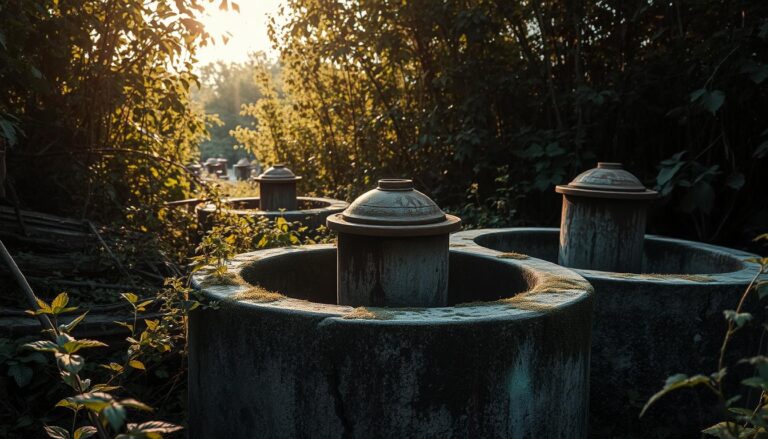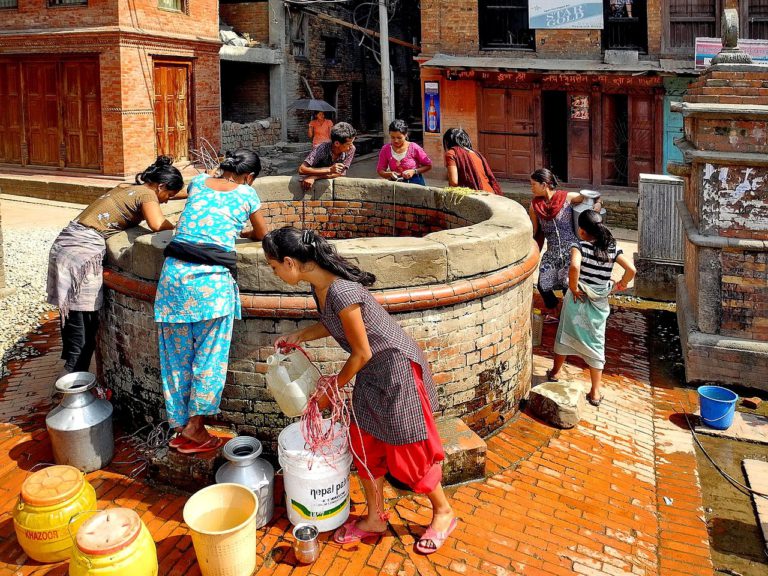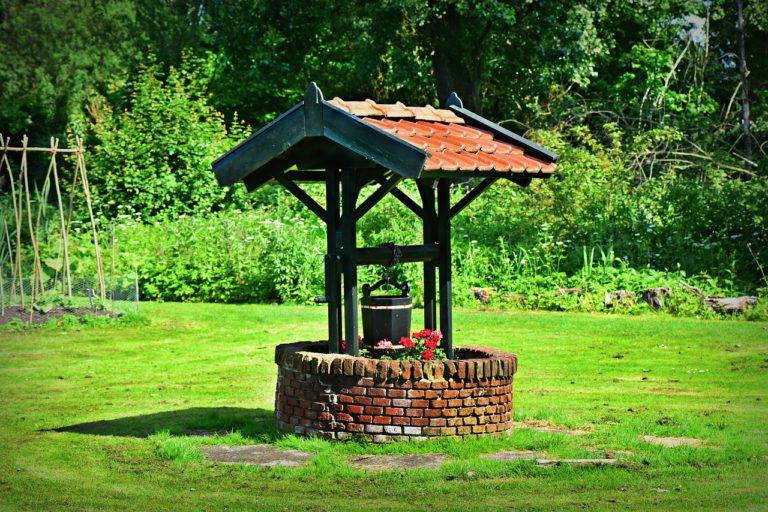Secure Your Water Future with a Private Borehole
Are you tired of relying on municipal water supplies that are often plagued by contaminants and inefficiencies?
With the growing need for alternative water sources, a private borehole can provide a reliable solution for your household or business.
By investing in a private borehole, you can enjoy a consistent and clean water supply, free from the worries of municipal water issues.
Key Takeaways
- Reliable and clean water source
- Reduced dependence on municipal water
- Potential cost savings on water bills
- Increased property value with a private borehole
- Environmentally friendly alternative to traditional water sources
The Growing Importance of Water Independence
With municipal water supplies facing unprecedented challenges, the need for water independence is gaining significant traction. As households become increasingly concerned about the reliability and quality of their water supply, alternatives such as residential borehole drilling are becoming more attractive.
Current Challenges in Municipal Water Supply
Municipal water supplies are facing numerous challenges, including aging infrastructure and increasing demand. These issues can lead to:
- Frequent boil-water advisories
- Water main breaks
- Supply shortages during peak usage periods
Rising Costs and Infrastructure Concerns
The cost of maintaining and upgrading municipal water infrastructure is rising, leading to increased water rates for consumers. Moreover, the aging infrastructure in many parts of the United States poses significant risks to water security.
Climate Change Impacts on Water Security
Climate change is altering precipitation patterns, leading to more frequent droughts and floods. This unpredictability affects the reliability of municipal water supplies, making water well installation an appealing option for those seeking water independence.
By investing in a private borehole, households can ensure a consistent and reliable water supply, reducing their dependence on municipal systems.
What Is a Private Borehole Water Supply?
Understanding the concept of a private borehole water supply is crucial for those looking to reduce their reliance on public water systems. A private borehole water supply is a self-contained system that extracts water from underground aquifers, providing a reliable source of clean water.
Defining Boreholes vs. Wells
While often used interchangeably, boreholes and wells are distinct in their construction and functionality. A borehole is typically narrower and drilled deeper than a well, often using specialized equipment to access deeper aquifers. In contrast, wells are generally wider and may not reach as deep. Boreholes are particularly advantageous in areas with deep water tables or where the geology is complex.
How Groundwater Systems Work
Groundwater systems rely on the natural recharge of aquifers, which are layers of permeable rock or soil that can store and transmit significant amounts of water. When it rains, some of the water seeps into the ground, recharging these aquifers. A borehole taps into this groundwater, bringing it to the surface for use.
The Science of Aquifers and Water Tables
Aquifers are crucial for a borehole’s success, acting as natural reservoirs. The water table is the upper surface of the aquifer, marking the boundary between the saturated and unsaturated zones. Understanding the local aquifer characteristics and water table depth is essential for the effective design and operation of a borehole system.
| Characteristics | Boreholes | Wells |
|---|---|---|
| Diameter | Narrower (often 6-12 inches) | Broader (often 3-6 feet) |
| Depth | Deeper (can exceed 500 feet) | Shallower (typically less than 100 feet) |
| Drilling Method | Mechanized drilling | Often manual or mechanized |
By understanding these fundamental aspects of private borehole water supply, homeowners can make informed decisions about their water independence and security.
Key Benefits of Installing Your Own Water Source
Developing a borehole on your property can be a game-changer for water independence. By installing a private borehole, you’re not only securing a reliable source of water but also gaining control over your water supply.
Long-Term Cost Savings Analysis
One of the significant advantages of a private borehole is the potential for long-term cost savings. Unlike municipal water supplies, which can increase in cost over time, a borehole involves initial installation costs followed by relatively low maintenance expenses. For a detailed analysis of the costs associated with off-grid water systems, you can explore resources such as this article.
Water Security During Shortages and Emergencies
A private borehole ensures water security during shortages and emergencies. With your own water source, you’re less dependent on municipal supplies, which can be affected by various factors including infrastructure issues and natural disasters.
Property Value Enhancement
Installing a borehole can also enhance your property value. A private water supply system is a valuable asset, particularly for properties in rural or semi-rural areas where municipal water may not be readily available or reliable.
Quality Control Advantages
With a private borehole, you have greater control over the quality of your water. You can implement your own water treatment solutions tailored to your specific needs, ensuring the water is safe and clean for consumption.
Assessing Your Property’s Borehole Potential
The first step in securing a private water supply is determining if your property is suitable for a borehole. This involves evaluating several key factors that influence the success of a borehole drilling project.
Geological Factors That Determine Success
The geology of your property plays a crucial role in determining its borehole potential. Areas with permeable rock formations like sandstone or fractured limestone are more likely to yield a successful borehole. In contrast, properties with dense or impermeable rock may face challenges. Consulting with a reputable borehole drilling company can help assess these geological factors.
Space and Access Requirements
Adequate space and access are essential for borehole drilling operations. The drilling rig requires a certain amount of clearance and a stable surface to operate effectively. Properties with limited access or restricted space may need to consider alternative solutions or modifications to accommodate the drilling equipment.
Conducting Preliminary Water Surveys
Before drilling, conducting preliminary water surveys is crucial. This involves:
- Assessing the local hydrogeology
- Reviewing existing water sources in the area
- Determining the depth to water table
Hydrogeological Assessments
A hydrogeological assessment provides detailed information about the groundwater resources in your area. This scientific approach helps predict the likelihood of finding water at a suitable depth and quantity.
Water Divining vs. Scientific Methods
While water divining has been used historically to locate water sources, scientific methods are more reliable and accurate. Techniques such as electrical resistivity tomography (ERT) and seismic surveys offer a more precise assessment of subsurface conditions. For the latest innovations in water well drilling rigs, visit https://homewatertreatmentsystems.com/discover-the-latest-innovations-in-water-well-drilling-rigs/.
| Assessment Method | Reliability | Cost |
|---|---|---|
| Hydrogeological Assessment | High | Moderate to High |
| Water Divining | Low to Moderate | Low |
| Scientific Surveys (ERT, Seismic) | High | High |
The Complete Borehole Installation Process
Installing a private borehole is a significant step towards securing a reliable rural water supply solution. This process involves several key stages that ensure the borehole is safe, efficient, and sustainable.
Site Preparation and Planning
Before drilling begins, it’s essential to conduct thorough site preparation and planning. This includes assessing the geological characteristics of the land, determining the optimal drilling location, and ensuring compliance with local regulations. Proper planning helps avoid potential issues during the drilling process.
Drilling Operations and Technologies
The drilling operation is the core of the borehole installation process. Various drilling technologies are available, including rotary drilling and percussion drilling. The choice of technology depends on the geological conditions and the depth of the borehole. Modern drilling rigs are equipped with advanced technology to improve efficiency and accuracy.
Casing Installation and Well Development
Once drilling is complete, the next step is to install casing to stabilize the borehole and prevent contamination. Well development follows, which involves cleaning the borehole and preparing it for use. This stage is crucial for ensuring the long-term viability of the water supply.
Pump Systems and Connection to Your Home
The final stage involves installing a pump system to extract water from the borehole and connecting it to your home’s plumbing system. The type of pump used depends on the depth of the borehole and the water demand. Proper installation of the pump system ensures efficient and reliable water supply.
By understanding the complete borehole installation process, property owners can make informed decisions about their water supply needs. A well-installed borehole provides a reliable and sustainable solution, enhancing water security for years to come.
Borehole Equipment and System Options
To ensure a consistent and safe water supply, it’s vital to understand the different borehole equipment and system options available. A well-designed system not only enhances the efficiency of your private borehole water supply but also ensures long-term reliability.
Types of Pumps for Different Needs
Selecting the right pump is critical for your borehole’s performance. There are primarily two types of pumps used in borehole systems.
Submersible Pumps
Submersible pumps are ideal for deep boreholes. They are placed underwater and are known for their efficiency and ability to handle high pressures.
Surface Pumps
Surface pumps, on the other hand, are used for shallower boreholes. They are easier to install and maintain but may not be as efficient for deeper wells.
Storage Tank Considerations
Adequate storage is essential for a reliable water supply. When choosing a storage tank, consider factors such as capacity, material, and compatibility with your pump system.
- Capacity: Ensure the tank can store enough water for your needs.
- Material: Tanks can be made from various materials, including steel, plastic, or concrete.
- Compatibility: The tank should be compatible with your pump and overall system.
Control Systems and Automation Options
Modern borehole systems can be equipped with advanced control systems and automation. These systems can monitor water levels, pressure, and flow rate, optimizing your water supply’s efficiency and safety.

Water Quality and Treatment Requirements
Ensuring the quality of your borehole water is crucial for your health and well-being. While boreholes offer a reliable source of water, the quality can vary significantly depending on several factors, including the geology of your area and potential sources of contamination.
Common Groundwater Contaminants in the US
Groundwater can be contaminated by various substances, including nitrates, bacteria, and heavy metals. These contaminants can come from agricultural runoff, septic systems, and industrial activities. Understanding the potential contaminants in your area is the first step in ensuring your water is safe to drink.
Testing Protocols and Frequency
Regular testing is essential to determine the quality of your borehole water. It is recommended to test your water at least once a year for various parameters, including pH, total dissolved solids, and presence of bacteria and nitrates.
More frequent testing may be necessary if you notice any changes in the taste, odor, or appearance of your water.
Filtration and Purification Systems
Depending on the results of your water testing, you may need to install a filtration or purification system to make your water safe for consumption. Various options are available, including:
- Sediment filtration to remove particulate matter and sediment.
- Chemical treatment options to remove or neutralize contaminants.
- UV purification systems to kill bacteria and viruses.
Sediment Filtration
Sediment filtration is a crucial step in water treatment, removing particles that can affect the taste, odor, and appearance of your water.
Chemical Treatment Options
Chemical treatments can be used to remove or neutralize various contaminants. The choice of treatment depends on the type and level of contaminants found in your water.
UV Purification Systems
UV purification is an effective method for killing bacteria and viruses, providing an additional layer of protection for your water supply.
Legal Requirements for Private Borehole Water Supply
The decision to install a private borehole involves not just technical considerations, but also compliance with various legal regulations. Homeowners must navigate a complex landscape of federal, state, and local laws to ensure their water supply is legally sound.
Federal Regulations Overview
At the federal level, the Safe Drinking Water Act (SDWA) sets standards for drinking water quality. While private boreholes are not directly regulated under the SDWA, understanding these standards can help homeowners ensure their water supply meets or exceeds federal guidelines. The Environmental Protection Agency (EPA) provides resources and guidance on water quality.
State-Specific Permit Requirements
Permit requirements for drilling a borehole vary significantly by state. Some states require permits for drilling, while others may have specific regulations regarding water usage. Homeowners should consult their state’s environmental or natural resources department to understand the specific requirements. For instance, services that specialize in borehole drilling can provide insights into local regulations.
Water Rights and Usage Restrictions
Water rights can be a complex issue, particularly in areas where water is scarce. Homeowners must understand their rights and any restrictions on water usage. This may involve understanding riparian rights or prior appropriation doctrines, depending on the state’s legal framework.
Environmental Compliance Considerations
Private borehole owners must also consider environmental compliance, including proper well construction and abandonment procedures to prevent groundwater contamination. Compliance with these regulations not only protects the environment but also ensures the long-term viability of the water supply.
Cost Analysis: Investment and Long-Term Savings
Understanding the costs associated with residential borehole drilling is crucial for making an informed decision. Installing a private borehole can be a significant investment, but it offers substantial long-term savings and increased water security.
Initial Installation Cost Breakdown
The initial cost of drilling a borehole can vary widely based on factors such as location, depth, and geology. A typical breakdown includes:
- Drilling costs: $15 to $30 per foot
- Casing and screen: $10 to $20 per foot
- Pump and piping: $2,000 to $5,000
- Electrical and control systems: $1,000 to $3,000
Overall, the total cost can range from $8,000 to $20,000 or more, depending on the complexity of the installation.

Ongoing Operational Expenses
While the initial investment is significant, ongoing expenses are generally lower than those associated with municipal water supplies. Key operational costs include:
- Electricity for pumping: $50 to $100 per month
- Maintenance and servicing: $200 to $500 per year
Comparing to Municipal Water Costs
When comparing the costs, it’s essential to consider both the short-term and long-term expenses. Municipal water costs can increase over time due to infrastructure upgrades and other factors. According to a report by the World Health Organization on drinking water costs, the long-term savings with a private borehole can be substantial.
Potential Tax Benefits and Incentives
Homeowners may be eligible for tax benefits or incentives for installing a private borehole, especially if it contributes to water conservation or is part of a larger environmental project. It’s advisable to consult with local authorities or a tax professional to understand the specific benefits available.
In conclusion, while the initial cost of residential borehole drilling can be significant, the long-term savings and increased water security make it a worthwhile investment for many homeowners.
Maintaining Your Borehole for Longevity
To maximize the lifespan of your domestic water well drilling investment, regular maintenance is essential. A well-maintained borehole ensures a consistent water supply, reduces the risk of costly repairs, and prolongs the system’s overall durability.
Recommended Maintenance Schedule
Establishing a regular maintenance schedule is crucial. This should include:
- Monthly inspections of the pump and motor
- Quarterly checks on the casing and well cap
- Annual testing of water quality
DIY vs. Professional Servicing
While some maintenance tasks can be performed DIY, such as checking the system’s electrical connections, more complex tasks like pump repairs are best handled by professionals. Professional servicing ensures that your system is properly maintained and can help identify potential issues before they become major problems.
| Task | DIY | Professional |
|---|---|---|
| Electrical Checks | Yes | No |
| Pump Repairs | No | Yes |
| Water Quality Testing | Yes | Yes |
Extending Your System’s Lifespan
Regular maintenance is key, but other factors such as proper installation and avoiding over-pumping can also contribute to a longer system lifespan. A well-designed system that is appropriately sized for your needs will last longer and perform more efficiently.
Seasonal Considerations
Different seasons bring different challenges. For example, freezing temperatures can affect your pipes, while dry seasons can impact water tables. Being aware of these seasonal factors can help you prepare and adjust your maintenance schedule accordingly.
Comparing Boreholes to Alternative Water Sources
Evaluating water supply options is crucial for making informed decisions about your water future. When it comes to securing a reliable water supply, several alternatives are available, each with its own set of advantages and disadvantages.
Municipal Water Supply Comparison
Municipal water supply is a common alternative to boreholes. While it is a convenient option, it may not be the most cost-effective or reliable choice, especially during times of drought or infrastructure failures. In contrast, boreholes offer a level of independence from municipal supplies.
Rainwater Harvesting Systems
Rainwater harvesting systems are another alternative, collecting and storing rainwater for various uses. While they can be effective, their reliability depends on weather conditions. Groundwater extraction through boreholes, on the other hand, provides a more consistent supply.
Surface Water Options
Surface water sources, such as rivers and lakes, can also be used for water supply. However, they often require extensive treatment due to potential contamination. Boreholes, accessing groundwater, typically require less treatment.
Environmental Impact Considerations
When comparing these alternatives, it’s essential to consider their environmental impacts. Boreholes, when properly managed, can have a lower environmental impact compared to other sources. A comparison of these options is as follows:
- Boreholes: consistent supply, lower treatment needs
- Rainwater harvesting: weather-dependent, lower infrastructure costs
- Surface water: high treatment needs, potential for contamination
- Municipal water: convenient, but potentially costly and unreliable
Conclusion: Securing Your Water Future
Investing in a private borehole water supply is a significant step towards achieving water independence. By understanding the benefits and process of borehole water system installation, you can make an informed decision about your water future.
A private water source development offers numerous advantages, including long-term cost savings, increased property value, and improved water quality. As discussed, assessing your property’s potential, understanding the installation process, and maintaining your borehole are crucial steps in ensuring a reliable and sustainable water supply.
By taking control of your water needs, you can mitigate the risks associated with municipal water supply challenges. With a private borehole, you can enjoy a consistent and high-quality water supply, giving you peace of mind and a secure water future.
Frequently Asked Questions
What is the average cost of drilling a private borehole?
What is the average cost of drilling a private borehole?
Frequently Asked Questions
What is the average cost of drilling a private borehole?
The cost of drilling a private borehole can vary significantly depending on factors such as location, geology, and depth. On average, the cost can range from to per foot, with total costs ranging from
FAQ
What is the average cost of drilling a private borehole?
The cost of drilling a private borehole can vary significantly depending on factors such as location, geology, and depth. On average, the cost can range from $15 to $30 per foot, with total costs ranging from $1,500 to $5,000 or more for a complete installation, including equipment and pumping systems.
How long does it take to drill a borehole?
The time it takes to drill a borehole depends on several factors, including the depth required, geology, and drilling technology used. On average, drilling a borehole can take anywhere from a few hours to several days. A typical drilling operation can take around 1-3 days.
What are the benefits of having a private borehole water supply?
Having a private borehole water supply offers several benefits, including long-term cost savings, enhanced water security during shortages and emergencies, property value enhancement, and quality control advantages. Additionally, a private borehole can provide a reliable source of clean water, reducing dependence on municipal water supplies.
How often should I test my borehole water quality?
It is recommended to test your borehole water quality at least once a year, or more frequently if you notice any changes in the taste, odor, or appearance of the water. Regular testing can help identify potential contaminants and ensure the water is safe for consumption.
Can I use a borehole for irrigation purposes?
Yes, a borehole can be used for irrigation purposes, providing a reliable source of water for agricultural or landscaping needs. However, it’s essential to ensure that the borehole is properly designed and equipped to meet the required flow rates and pressures.
What are the environmental considerations for borehole installation?
Borehole installation requires careful consideration of environmental factors, including the potential impact on local aquifers, water tables, and surrounding ecosystems. It’s essential to work with experienced professionals to ensure that the borehole is installed in an environmentally responsible manner.
Do I need a permit to drill a borehole?
Yes, in most states, you will need a permit to drill a borehole. The specific requirements vary depending on the location and local regulations. It’s essential to check with local authorities to determine the necessary permits and comply with relevant regulations.
How can I maintain my borehole system?
Regular maintenance is crucial to ensure the longevity and performance of your borehole system. This includes regular testing of water quality, inspecting and maintaining equipment, and performing routine servicing. It’s recommended to work with a professional to develop a maintenance schedule tailored to your specific needs.
,500 to ,000 or more for a complete installation, including equipment and pumping systems.
How long does it take to drill a borehole?
The time it takes to drill a borehole depends on several factors, including the depth required, geology, and drilling technology used. On average, drilling a borehole can take anywhere from a few hours to several days. A typical drilling operation can take around 1-3 days.
What are the benefits of having a private borehole water supply?
Having a private borehole water supply offers several benefits, including long-term cost savings, enhanced water security during shortages and emergencies, property value enhancement, and quality control advantages. Additionally, a private borehole can provide a reliable source of clean water, reducing dependence on municipal water supplies.
How often should I test my borehole water quality?
It is recommended to test your borehole water quality at least once a year, or more frequently if you notice any changes in the taste, odor, or appearance of the water. Regular testing can help identify potential contaminants and ensure the water is safe for consumption.
Can I use a borehole for irrigation purposes?
Yes, a borehole can be used for irrigation purposes, providing a reliable source of water for agricultural or landscaping needs. However, it’s essential to ensure that the borehole is properly designed and equipped to meet the required flow rates and pressures.
What are the environmental considerations for borehole installation?
Borehole installation requires careful consideration of environmental factors, including the potential impact on local aquifers, water tables, and surrounding ecosystems. It’s essential to work with experienced professionals to ensure that the borehole is installed in an environmentally responsible manner.
Do I need a permit to drill a borehole?
Yes, in most states, you will need a permit to drill a borehole. The specific requirements vary depending on the location and local regulations. It’s essential to check with local authorities to determine the necessary permits and comply with relevant regulations.
How can I maintain my borehole system?
Regular maintenance is crucial to ensure the longevity and performance of your borehole system. This includes regular testing of water quality, inspecting and maintaining equipment, and performing routine servicing. It’s recommended to work with a professional to develop a maintenance schedule tailored to your specific needs.







